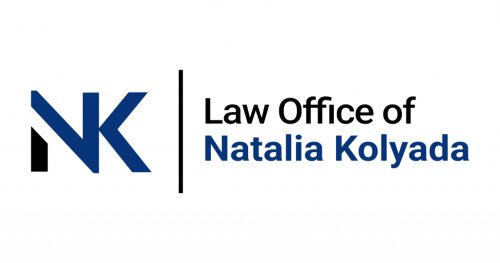Best Collaborative Law Lawyers in Boston
Share your needs with us, get contacted by law firms.
Free. Takes 2 min.
Free Guide to Hiring a Family Lawyer
List of the best lawyers in Boston, United States
About Collaborative Law in Boston, United States:
Collaborative Law is a method of alternative dispute resolution where both parties work together with their lawyers to find mutually beneficial solutions. In Boston, United States, Collaborative Law is a popular choice for resolving family law disputes such as divorce, child custody, and property division.
Why You May Need a Lawyer:
You may need a lawyer in Collaborative Law to ensure your rights are protected, to help you navigate the legal process, and to negotiate on your behalf. A lawyer can also provide valuable advice and support during the collaborative process, ensuring that your interests are represented.
Local Laws Overview:
In Boston, United States, Collaborative Law is governed by specific rules and regulations that outline the process and requirements for participating in collaborative negotiations. It is important to be aware of these local laws to ensure that your collaborative agreement is legally binding.
Frequently Asked Questions:
Q: What is the difference between Collaborative Law and traditional litigation?
A: Collaborative Law focuses on reaching agreements through cooperation and negotiation, while traditional litigation involves going to court for a judge to make decisions.
Q: How long does a Collaborative Law process typically take?
A: The length of a Collaborative Law process can vary depending on the complexity of the issues involved and the willingness of both parties to reach an agreement. It can take anywhere from a few months to over a year.
Q: Can children be involved in the Collaborative Law process?
A: Yes, children's interests are often a priority in Collaborative Law cases involving custody and visitation arrangements. Child specialists may be included in the process to ensure that their needs are taken into account.
Q: What happens if we can't reach an agreement through Collaborative Law?
A: If an agreement cannot be reached through Collaborative Law, both parties will need to hire new lawyers to represent them in court for traditional litigation.
Q: How much does Collaborative Law cost?
A: The cost of Collaborative Law can vary depending on the complexity of the case and the number of meetings necessary. However, it is often more cost-effective than traditional litigation.
Q: Can I use the same lawyer as my partner in a Collaborative Law case?
A: No, each party must have their own independent lawyer to represent their individual interests in the collaborative process.
Q: Is Collaborative Law confidential?
A: Yes, the discussions and negotiations that take place during the Collaborative Law process are confidential and cannot be used in court if the case goes to litigation.
Q: What are the benefits of using Collaborative Law?
A: Collaborative Law offers a more amicable and cooperative approach to resolving disputes, allowing both parties to have more control over the outcome and potentially preserving their relationship moving forward.
Q: Can Collaborative Law be used for business disputes?
A: Yes, Collaborative Law can be used for a variety of disputes, including business disputes, as long as both parties are willing to work together to find a solution.
Q: How do I find a Collaborative Law lawyer in Boston, United States?
A: You can search for Collaborative Law lawyers in Boston through local bar associations, online directories, or by asking for recommendations from friends or family members.
Additional Resources:
For more information on Collaborative Law in Boston, you can visit the Massachusetts Collaborative Law Council website at www.massclc.org. This organization provides resources, training, and referrals for Collaborative Law practitioners in the state.
Next Steps:
If you are in need of legal assistance in Collaborative Law in Boston, United States, the first step is to schedule a consultation with a qualified Collaborative Law lawyer. During this initial meeting, you can discuss your case, ask any questions you may have, and determine if Collaborative Law is the right path for you.
Remember that in Collaborative Law, both parties must be willing to work together to find a solution, so it is important to approach the process with an open mind and a willingness to negotiate in good faith.
Lawzana helps you find the best lawyers and law firms in Boston through a curated and pre-screened list of qualified legal professionals. Our platform offers rankings and detailed profiles of attorneys and law firms, allowing you to compare based on practice areas, including Collaborative Law, experience, and client feedback.
Each profile includes a description of the firm's areas of practice, client reviews, team members and partners, year of establishment, spoken languages, office locations, contact information, social media presence, and any published articles or resources. Most firms on our platform speak English and are experienced in both local and international legal matters.
Get a quote from top-rated law firms in Boston, United States — quickly, securely, and without unnecessary hassle.
Disclaimer:
The information provided on this page is for general informational purposes only and does not constitute legal advice. While we strive to ensure the accuracy and relevance of the content, legal information may change over time, and interpretations of the law can vary. You should always consult with a qualified legal professional for advice specific to your situation.
We disclaim all liability for actions taken or not taken based on the content of this page. If you believe any information is incorrect or outdated, please contact us, and we will review and update it where appropriate.











